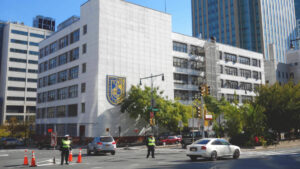New York City College of Technology, commonly known as City Tech, stands as a beacon of academic excellence and innovation within the heart of Brooklyn, New York. As part of the City University of New York (CUNY) system, this institution has carved out a unique niche in providing cutting-edge education, practical skills training, and diverse opportunities for students pursuing careers in technology, engineering, healthcare, hospitality, and beyond. This article explores the rich history, academic programs, campus life, and impact of New York City College of Technology on its students and the community.
History and Evolution
Established in 1946 as the New York State Institute of Applied Arts and Sciences at Voorhees, City Tech has undergone several transformations over the decades. It officially became part of the CUNY system in 1964 and adopted its current name, New York City College of Technology. Since then, the college has steadily expanded its academic offerings and facilities, evolving into a dynamic institution that reflects the vibrant spirit of Brooklyn and its surrounding communities.
Academic Programs and Excellence
City Tech offers a wide array of undergraduate and graduate programs across various disciplines, emphasizing practical, hands-on learning and industry-relevant skills. Key academic areas include:
1. Technology and Engineering
- Mechanical Engineering Technology: Focuses on preparing students for careers in manufacturing, design, and automation.
- Computer Engineering Technology: Provides training in hardware and software development, networking, and cybersecurity.
- Electrical Engineering Technology: Covers power systems, electronics, and telecommunications.
2. Healthcare and Human Services
- Nursing: Prepares students for licensure as registered nurses, emphasizing clinical practice and patient-centered care.
- Radiologic Technology: Trains students in medical imaging techniques essential for diagnosing and treating patients.
- Health Services Administration: Combines business management principles with healthcare delivery, preparing graduates for leadership roles.
3. Hospitality Management
- Hotel and Restaurant Management: Focuses on the operational aspects of the hospitality industry, including food service, event planning, and guest relations.
- Tourism and Travel: Covers tourism marketing, destination management, and sustainable tourism practices.
Campus Life and Community Engagement
City Tech’s urban campus in downtown Brooklyn provides a vibrant setting for student life, cultural enrichment, and community engagement. The college hosts a variety of events, clubs, and organizations that foster leadership skills, cultural awareness, and personal development. Key aspects of campus life include:
- Student Clubs and Organizations: From academic clubs related to engineering and technology to cultural clubs celebrating diversity, City Tech offers numerous opportunities for students to get involved.
- Community Partnerships: The college collaborates with local businesses, healthcare facilities, and nonprofit organizations to provide students with internship opportunities, real-world experiences, and networking connections.
- Cultural and Academic Events: City Tech regularly hosts lectures, workshops, and exhibitions that enrich the academic experience and promote interdisciplinary learning.
Impact on the Community and Beyond
As an integral part of Brooklyn’s educational landscape, City Tech plays a crucial role in supporting economic development and workforce readiness. The college’s emphasis on practical education aligns with industry demands, ensuring that graduates are well-prepared to meet the challenges of a rapidly evolving global economy. Key contributions to the community include:
- Workforce Development Initiatives: City Tech collaborates with industry partners to develop customized training programs that address specific workforce needs in sectors such as technology, healthcare, and hospitality.
- Research and Innovation: Faculty and students engage in research projects that contribute to advancements in their respective fields, from sustainable engineering solutions to healthcare innovations.
- Alumni Success Stories: City Tech alumni have made significant contributions to their professions and communities, serving as leaders, innovators, and mentors in diverse industries worldwide.
Future Directions and Continuing Excellence
Looking ahead, City Tech remains committed to expanding its academic offerings, enhancing campus facilities, and fostering a supportive learning environment that empowers students to achieve their goals. The college’s strategic initiatives focus on:
- Enhancing Academic Programs: Continuously updating curricula to reflect industry trends and emerging technologies.
- Investing in Facilities: Upgrading laboratories, classrooms, and student spaces to support collaborative learning and hands-on training.
- Promoting Diversity and Inclusion: Embracing cultural diversity and ensuring equitable access to education and opportunities for all students.
Conclusion
New York City College of Technology stands at the forefront of higher education, blending academic rigor with practical experience to prepare students for successful careers in a dynamic global economy. Through its commitment to innovation, community engagement, and academic excellence, City Tech continues to make a profound impact on its students, the Brooklyn community, and beyond. As it embarks on its next chapter, the college remains dedicated to shaping the future of education and empowering individuals to achieve their full potential in an increasingly interconnected world.
3.5



